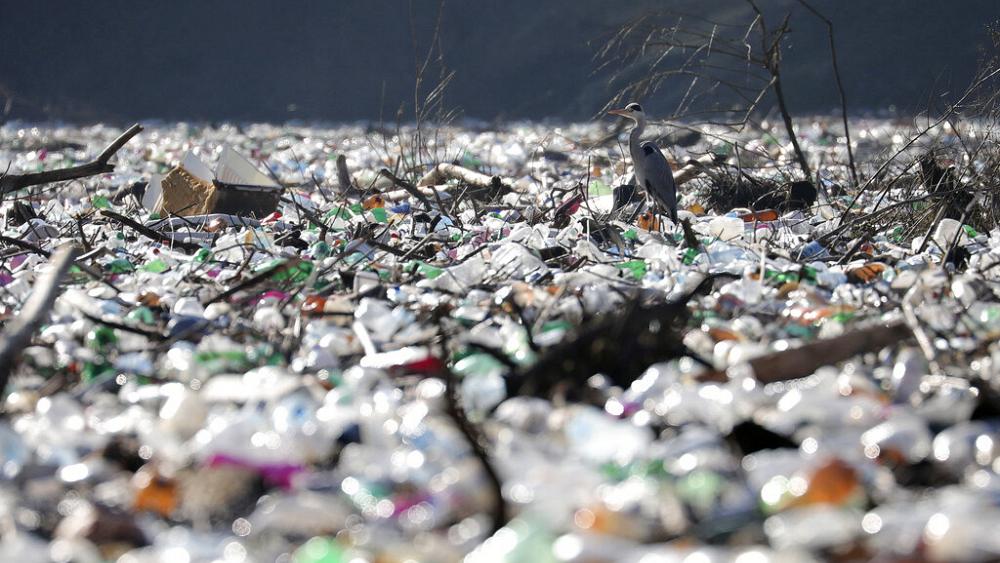
Have you picked up a product at the supermarket which claims to have plant-based or biodegradable packaging? You might think you’re doing a favour for the environment. But the makers of bioplastics have urged consumers to double check what it says on the packaging, because it might not be as biodegradable as you think.
It’s becoming more common to see plastics described as biodegradable or compostable but it doesn’t mean you can be carefree with how you dispose of them.
“When I hear the words biodegradable – for me – that’s going to be like an apple that’s going to disappear within weeks,” says marine scientist Imogen Napper.
Napper has tested to see how a range of different plastic bags would degrade in different environments.
“We buried them in the soil, we submerged them in the sea, we hung them outside,” she says. “All of the bags didn’t completely disappear in all of the environments. We had some biodegradable bags that did disappear in the ocean but not necessarily in the soil and our study showed that after three years, the majority of these bags could still hold a full bag of shopping.”
But leaders of the bioplastics industry point out, the bags were not actually biodegradable.
One of them was claimed to be biodegradable but it wasn’t.
“The other one was correctly labelled as being compostable,” says Hasso von Pogrell, Managing Director, European Bioplastics. “That actually worked very well and it even biodegraded in the water and in the soil even though it was only certified to be biodegrading in a composting facility.”
And that’s a key difference: compostable and biodegradable are not the same.
“These bags often need to go into a really specific place to break down; that could be an industrial composter where there’s high heat, high moisture to completely break down,” says Napper.
Some of us have the option to put food waste into a special bin which the council collects.
But in many areas, residents are told not to put anything other than food in there. No compostable plastics either.
“A lot of composting facilities don’t know that these plastics indeed biodegrade quickly enough to be used together with food,” says Hasso von Pogrell. “So in order to make sure that no plastic enters their composting facilities, they often say they want to avoid any plastic altogether.”
So how can we better understand whether these materials will really break down?
“Labelling would be the first thing to go for and then to understand what it actually means,” von Pogrell says. “The seedling label that European Biolplastics own and the two labels that certifiers own but that doesn’t exclude the possibility that people have been misusing that label as well.”
And one golden rule must remain, he says:
“No plastic should be thrown in the environment whatsoever, no matter how well it may biodegrade. No plastic belongs in the environment period.”
Related posts:
Views: 0
 RSS Feed
RSS Feed
















 February 19th, 2021
February 19th, 2021  Awake Goy
Awake Goy  Posted in
Posted in  Tags:
Tags: 
















